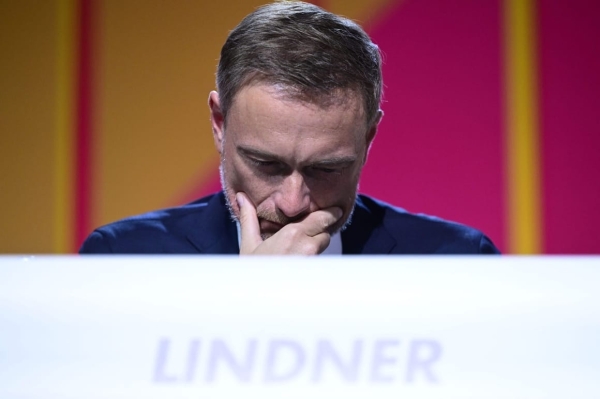Rocky road ahead as EU reforms government spending rules
Berlin wins safeguards on debt reduction but hard-line countries are likely to dig their heels in.
BRUSSELS ― The European Commission has inched closer to meeting German demands over reforms to how the EU polices government spending ― but it’s unlikely to be enough to win Berlin’s immediate support.
The thrust of the proposals, the draft of which was obtained by POLITICO, is to force EU countries to shrink public debts at their own speed rather than having to comply with a uniform rate of reduction as is currently the case. The idea, to be unveiled on Wednesday, is that governments will “own” the rules and so become more likely to adhere to them, and that the Commission will enforce them more strictly than in the past.
The spending rules, known as the Stability and Growth Pact and beefed up amid the eurozone debt crisis a decade ago, have long been one of the fundamental tensions at the heart of the European Union. With the COVID pandemic and war in Ukraine leaving countries with increasing piles of debt, Brussels seized the opportunity to adapt the rules and make them better suited to climate-neutral investment needs.
After the Commission floated its ideas in November, triggering months of negotiations between Brussels and capitals, the EU executive has moved to take account of German concerns by incorporating safeguards on debt reduction, according to four people familiar with the plan who spoke on condition of anonymity because the proposals aren’t yet public.
The concessions are unlikely to be sufficient for Berlin however. On Tuesday, Finance Minister Christian Lindner said in an op-ed for the Financial Times that the overall plan “would make the issue of debt reduction a subject of political negotiation.” He said the rules needed to be strengthened rather than diluted.
"What the Commission will propose, I’m pretty sure it won’t be seen as sufficient," said Johannes Lindner, co-director of the Jacques Delors Centre, a think tank in Berlin.
Germany’s opposition is likely to lead to months of tough negotiations between the EU’s 27 countries — which all need to back the plan — and the European Parliament, with the aim of wrapping up legislation ahead of European elections next spring.
EU finance ministers have been even more ambitious, giving themselves to the end of 2023 to get a deal, but that’s unlikely.
“This will be done within this [Commission’s] mandate, it will just happen at the very last minute,” predicted Mujtaba Rahman, Europe director at Eurasia Group, a political risk analysis firm.
Four-year plan
Under the proposed reform, the Commission would negotiate a country-specific debt reduction path with each country whose debt is above the 60 percent-to-GDP ratio. This would be based on a debt sustainability analysis, and translate into annual expenditure ceilings.
Countries would then have to commit to a four-year plan, extendable to seven in exchange of reforms and investments, that would need the approval of the Commission as well as other EU countries. If a government veers off path, fines would be wielded in a more predictable manner than has been the case up to now.
This is dramatically different from current rules, which formally oblige each country to reduce excess debt by 5 percent each year, widely considered far too demanding. Existing sanctions were 0.1 percent of GDP per year — a nuclear option that was never applied, and did little to deter misbehavior.

Hard rules
Germany and other "fiscal hawks," including the Netherlands and Finland, think that leaving the Commission to negotiate debt reduction with capitals is too soft.
Berlin wants to anchor the Commission’s approach to some hard rules, including annual debt reduction of at least one percentage point, and limiting public expenditure to one percentage point below a country’s potential output.
At Berlin’s insistence, and after Commission President Ursula von der Leyen stepped in, the Commission amended the proposal to include three safeguards, according to the four people familiar with it.
These are an obligation to reduce debt within the four-year time horizon of the plan, an obligation to reduce debt by by 0.5 per cent of GDP per year if a country breaches a 3 percent limit on annual deficits, and a requirement to keep expenditure below potential GDP growth, without specifying by how much.
This in turn is likely to anger high-debt countries like Italy and others, who perceive this as too strict and see it as a capitulation to German demands.
While there are tough negotiations ahead — and these proposals are still subject to change — what everyone seems to agree on is that reform was necessary.
“The Commission was right in using the pressure of the digital and green transition, and the opportunity presented by COVID, to rethink its fiscal approach entirely,” Rahman said.
Updated to include link to draft proposals.



